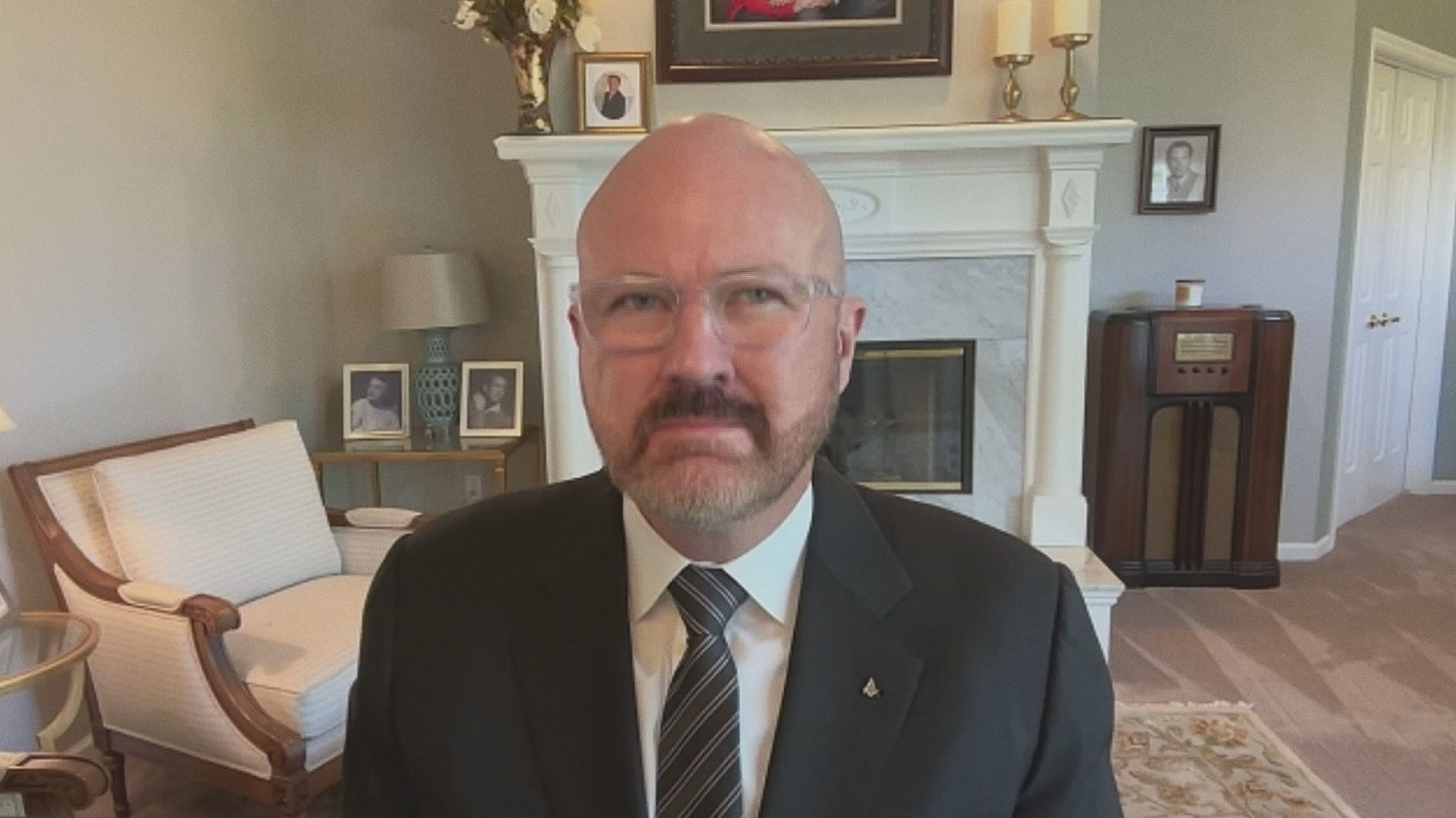'Kurdistan Will Serve as a Model for Other Nations,' U.S. Security Expert
Shockley said the Trump administration prioritized peace and economic growth, with Kurdistan playing a key role: "There are great opportunities in Kurdistan—in energy, in manufacturing. We’ll see continued U.S. investment, and with that, a strong commitment to ensuring peace and stability."

By Kamaran Aziz
ERBIL (Kurdistan24) – In a wide-ranging and emphatic interview, Kenneth Shockley, a leading expert in high-threat security and crisis communications, praised the Kurdistan Region as a model of reliability, partnership, and stability in a region too often dominated by turmoil and political volatility.
Speaking candidly about the evolving security landscape and economic prospects in the Middle East, Shockley underscored the enduring value of the Kurdish-American partnership. "Kurdistan has proven to be a good friend to America throughout the years—in previous wars and during the fight against ISIS," he stated. "The Kurds have consistently shown themselves to be reliable, trustworthy, and most importantly—stable."
That stability, Shockley argued, stands in stark contrast to many other regional actors. "There's been a lot of movement, changes in governments, and instability across the Middle East. However, Kurdistan has remained a constant. It is a region that the U.S. and NATO can count on."
Shockley emphasized that the Trump administration had placed a clear focus on fostering peace and encouraging economic opportunity in the region. He believes that the Kurdistan Region will play a central role in those efforts: "There are great opportunities in Kurdistan—in energy, in manufacturing. We’ll see continued U.S. investment, and with that, a strong commitment to ensuring peace and stability."
According to Shockley, American companies are increasingly viewing the Kurdistan Region as a key gateway for investment. "It’s not just oil—though that’s significant. Kurdistan offers prospects in manufacturing and broader economic development," he said. "As long as the region remains committed to peace and the well-being of its people—which it has—the U.S. will continue to view it as a priority partner."
Geopolitically, the Kurdistan Region holds strategic weight. Shockley noted that it lies between two volatile areas: Syria, with its evolving political future, and Iran, embroiled in nuclear negotiations and internal unrest. In this context, he sees the Kurds as a crucial common denominator in America’s broader regional strategy.
"President Trump has made it clear—he wants to end wars and stimulate economic growth," Shockley said. "The Kurdish people, with their unwavering support for peace and development, embody exactly the kind of partner the U.S. is looking for."
Shockley also reiterated the strategic military partnership between the U.S. and the Kurdish Peshmerga forces. "They have been excellent partners in battling ISIS. With or without U.S. help, they stood strong and succeeded in defeating Daesh," he affirmed. "The U.S. will continue to support them with intelligence, advising, and military presence."
More than military cooperation, Shockley sees the Kurdistan Region as a stable base from which the U.S. can project not only security efforts, but also diplomatic and economic growth strategies. "Kurdistan’s consistency is its strength," he explained. "It has remained a trustworthy partner when others have faltered."
Reflecting on years of cooperation, Shockley was unequivocal: "Since 2011, the Kurdish government has repeatedly proven itself. During large-scale invasions, during ISIS, during regional turmoil—the Kurds were there. Their actions alone speak volumes."
He contrasted the KRG’s priorities with those of Baghdad and Tehran: "In Iran and Baghdad, politics often come first. In Erbil, the people come first. The Kurdish leadership prioritizes families, safety, education, and peace. This is why they continue to grow while others flounder."
Shockley urged Washington to press Baghdad into more constructive cooperation with the Kurdistan Region. "The U.S. must help bring Baghdad to the table. The Kurdish Interior Ministry has been a steadfast partner. They deserve recognition and support, especially after standing firm during Daesh’s invasion when others collapsed."
"The Kurds have put the growth of their nation and the happiness and security of their people first," he stressed. "Their vision is closely aligned with that of the Trump administration: peace over war, growth over destruction."
Looking ahead, Shockley predicted that Kurdistan could become a model for the wider region. "The U.S. sees Kurdistan not just as a military partner, but as a platform for long-term economic development. That stability will attract more American companies, more investment, and more collaboration."
"Kurdistan will serve as a base of operations—not just for security—but for economic transformation. That’s what peace looks like. That’s what regional leadership looks like," he concluded. "The Kurds have earned their role as America’s most reliable ally in the region."
For a region plagued by instability and shifting allegiances, Kenneth Shockley’s message is both rare and resolute: the Kurdistan Region remains a beacon of consistency—and the United States, he says, knows it.